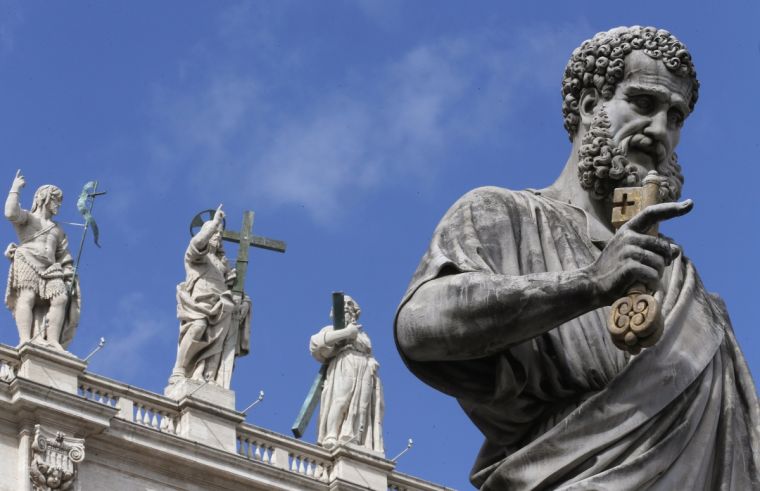St Peter's confession: How the 'rock' of the church got God so wrong
Today, in some corners of the Church at least, is the liturgical day of the Confession of Peter. It remembers the famous exclamation of St Peter to Jesus, when asked 'Who do you say I am?' Simon Peter responds emphatically: 'You are the Christ [Messiah], Son of the living God.' Later Jesus then gives Simon the daunting declaration: 'On this rock I will build my church', renames him Peter and promises him the 'keys to the kingdom of heaven '(Matthew 16: 12-20).
It's a remarkable moment, underlining not only Jesus's divine purpose and identity, but the commissioning of Peter too. Peter sees Jesus for who he is – he 'gets it'. It's also an impressive scene because in just about every other recorded moment in the rock's life, he gets it so tragically wrong. The story of the 'chosen one' Peter is not one of titanic success and inspired leadership, but of a wayward disciple who stumbles, falls and frequently stands against God. The Church it seems is built not upon a sinless saint, but a famous failure.
Consider for example when Peter rebukes Jesus for predicting his crucifixion, adamant as he is that the Messiah didn't come just to be killed. Jesus' reply doesn't hold back: 'Get behind me, Satan' (Matthew 16:23). When Jesus is arrested and taken away to die, a fearful Peter insists to a little girl, three times: 'I don't know the man!' Famously, the crowing rooster is his condemnation (Matthew 26:69-75)

But the disappointment doesn't end there. Peter seems to be on the right track when restored by the resurrected Jesus (John 21), going on to dramatically address the crowd at Pentecost, preaching the gospel and seeing thousands converted. But in Acts 10, he's still missing the point, insisting on the Jewish ritual purity laws that Jesus had insisted no longer mattered. It takes a vision from God and a Gentile named Cornelius for him to realise that 'God does not show favouritism but accepts from every nation the one who fears him and does what is right'.
In Galatians 2, St Paul tells of how he had to oppose Peter 'to his face' after Cephas (as he calls Peter) had begun to eat only with Jews, aligning with the group that taught circumcision as essential to salvation, thus denying that the Gospel was for Gentiles as well as Jews. Cephas was a hypocrite who 'stood condemned', Paul wrote, since 'we know that a person is not justified by works of the law, but by faith in Jesus Christ'.
God's chosen 'rock', the foundation of the Church, who walked and talked with Jesus Christ, failed, failed and failed again. He seems to have required constant slaps in the face to grasp the very basics of the Gospel. That all his flaws are so flagrantly borne out in the New Testament is a witness to its honesty: incompetency doesn't look great in a founding figure, ineptitude doesn't tend to inspire. The Bible is bad propaganda for a Church that wants to look good.
But perhaps that is the lesson of Peter's life: discipleship isn't about ignoring deficiencies, but facing them. Peter wasn't 'fired' because he failed; an encouragement to any Christian prone to stumble and fall (ie all Christians). To err is human.
We meet an older, wiser Peter when he authors his epistles, in which he implores humility over the eager pursuit of power – because 'God opposes the proud'(1 Peter 5:5). God, he encourages his readers, and has learned well, is patient and wishes no one to perish (2 Peter 3:9).
It's important to remember the 'confession': the moment in which Peter grasped Jesus' identity, seeing him as not just a man but the Messiah. It's also essential to remember the rest of his story, lest we begin to imagine an airbrushed 'life of Peter', some inerrant ecclesial icon we could never live up to.
Peter was the rock of the Church. Peter was also a failure. His life shows that real change is hard and ongoing – the human heart is stubborn, not easily moved. But change is possible too. It just might take a while.











